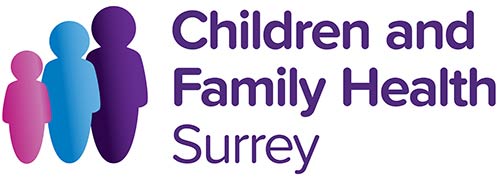Bronchiolitis is a common infection of the lower respiratory tract that affects babies and young children under 2 years old. It is almost always caused by a viral infection. In most cases, the respiratory syncytial virus (RSV) is responsible.
For information and advice about feeding your baby or infant when they have Bronchiolitis, please read the sections below.
For further support pleae contact our Surrey-wide 0-19 Advice Line on 01883 340 922, 8am – 5pm, Monday to Friday excluding Bank Holidays. Alternatively contact your GP or call NHS 111.
Please visit the infant feeding (inc breastfeeding) webpage for more advice, tips and information about feeding your baby.
Bronchiolitis is a common infection of the lower respiratory tract that affects babies and young children under 2 years old.
It is almost always caused by a viral infection. In most cases, the respiratory syncytial virus (RSV) is responsible.
It is most common from November to March but due to the COVID-19 pandemic it may occur anytime, it can occur more than once during this period; almost all children are infected with it by the time they're 2 years old.
Symptoms include:
- rapid or noisy breathing (wheezing)
- a rasping and persistent dry cough
- brief pauses in their breathing
- feeding less/fussy feeding
- having fewer wet nappies
- vomiting after feeding
- being generally unsettled.
During this time there are things you can do to comfort your baby, such as cuddling and breastfeeding your baby, having skin to skin contact, keep them close to you or stroking their hands/feet.
These actions will help both you and your baby feel relaxed by releasing a hormone called oxytocin (the love hormone).
Breastfeeding your baby reduces the risk and severity of respiratory infections; the longer your baby has breastmilk/breastfeeds the greater the protection is.
One of the symptoms of RSV is that your baby may be feeding less; if your baby is not feeding as frequently and is not having as many wet nappies you must seek medical advice.
During this time your baby may not tolerate feeds (breast or bottle) and may need support with their feeding to help them rest more, but take in food.
Too much activity like feeding may tire them out and make it more difficult for them to breathe. Saline nasal drops can help when baby is snuffly; they may need oxygen to help them with their breathing.
We make breastmilk by supply and demand, your baby will signal to you to make milk by feeding and removing milk.
If your breastfed baby is feeding less frequently this can mean you will make less milk.

- Feed whenever baby shows early, subtle feeding cues
- Little and often may help
- Lots of skin to skin contact
- Keep baby close day and night
- Express to ensure milk is being removed from your breast at least 8 times in 24 hours (mimic baby’s feeding pattern). Remember night feeds are important for milk production, especially in the early weeks
- If you are on the Children’s Ward with your baby, ask staff to bring you a double electric breast pump and help set it up correctly.
- Hand expressing can help protect your supply or tempt a sleepy baby to the breast.
- If baby has a nasogastric tube, hold them near your breast or nipple whilst they have their feed
- Monitor nappy output
- Access breastfeeding support.
Whether you are giving expressed breastmilk or 1st stage infant formula, (no need to change milk unless advised by a health visitor or district nurse in the first year of life) babies enjoy feeding slowly, particularly when experiencing breathing difficulties.
Support your baby to control their own feeding speed and pace.
You can help them with this by:
- Holding your baby close to you, in a slightly upright position
- Look into your baby’s eyes and talk gently to them
- Gently rub the teat against your baby’s top lip to encourage them to open their mouth and poke their tongue out
- Little and often may help
- Pace the feed to let your baby take breaks
- Don’t force your baby to take all the milk if they don’t want it, as this can cause them discomfort and increase the risk of them bringing their milk back
- Limit the number of people who feed your baby so the main carer understands baby’s cues
- Keep baby elevated as much as possible to help with their breathing
- Observe nappies for signs baby is receiving enough milk.
You may find that your baby is more unsettled after and between feeds following RSV, and they may bring some milk back after feeding.
Returning to normal feeding can take some babies longer than others; little and often and taking it slowly can help and it may be that your baby just wants to be held a little more, and be more settled in your arms.
If you are breastfeeding and baby is unsettled, access help and ask for someone to look at how baby attaches to the breast.
Talking with your health visitor can help you identify what is going on for your baby and what may help.
You may see a change in your baby’s stooling (poo) pattern; they may change in frequency, colour or consistency – this is usually temporary. This can be a very normal response to illness or antibiotics.
If you are formula feeding, there is no need to change the milk your baby receives.
If you are breastfeeding there is no need to stop, the antibodies baby receives from breastmilk have never been more important.
This information has been created with information developed by Virgin Care with their kind permission (August 2021).

